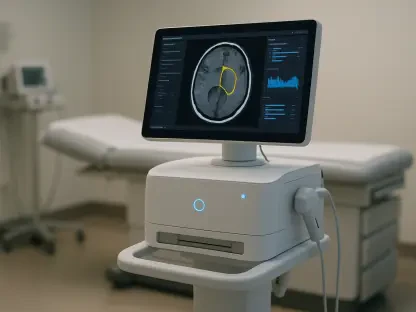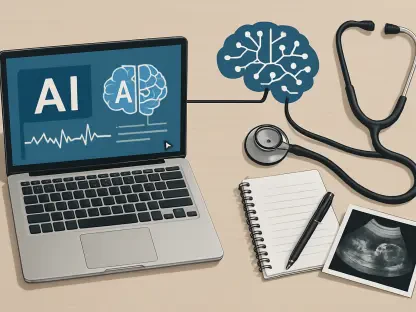In today’s rapidly evolving healthcare finance landscape, a strategic, people-first approach to Revenue Cycle Management (RCM) can significantly enhance operational efficiency, accuracy, and team engagement, ultimately leading to better financial outcomes. By focusing on continuous learning, upskilling employees, and robust talent development, healthcare institutions can optimize revenue capture and ensure seamless succession planning. This article delves into how a people-first strategy can transform healthcare revenue management.
Prioritizing Continuous Learning
The healthcare industry is dynamic, with frequent technological advancements, regulatory changes, and evolving payer requirements. To keep pace with these changes, RCM teams must embrace a culture of continuous learning. This not only helps employees stay updated with the latest developments but also equips them to manage complex processes more effectively. Investing in continuous learning ensures that teams are well-prepared to adapt to industry shifts, thereby maintaining high standards of service delivery.
By fostering an environment where learning is encouraged, healthcare organizations can empower their employees to take on new challenges confidently. This empowerment can lead to improved morale and job satisfaction, which are critical for reducing turnover rates and retaining skilled talent. Moreover, continuous learning initiatives can identify knowledge gaps and provide targeted training to address them, further strengthening the team’s overall capabilities.
Incorporating continuous learning into the daily routine of RCM teams can also create a culture of innovation. Employees who are encouraged to learn and grow are more likely to contribute ideas that can streamline processes, reduce costs, and enhance revenue capture. Thus, continuous learning not only benefits individual employees but also drives organizational excellence.
Benefits of Upskilling Employees
Investing in the development of existing employees through upskilling is a strategic move that healthcare organizations cannot afford to overlook. Upskilling enhances employees’ abilities to navigate the intricacies of revenue cycle processes with greater efficiency and accuracy. By improving their competencies, healthcare institutions can reduce errors, minimize claim denials, and optimize reimbursement rates.
Upskilled employees are more likely to feel valued and engaged, which can lead to higher job satisfaction and retention rates. This sense of empowerment fosters a positive work culture where employees are motivated to perform at their best. Additionally, well-trained employees can handle complex cases more efficiently, ensuring that revenue is captured accurately and promptly.
Moreover, upskilling facilitates career advancement opportunities for employees, aligning their personal growth with organizational goals. Creating a clear career ladder within RCM teams encourages employees to aspire to higher roles, fostering a sense of loyalty and long-term commitment to the organization. This alignment between individual aspirations and organizational objectives is crucial for sustainable success in healthcare revenue management.
Effective Talent Development
Talent development is a cornerstone of sustainable healthcare revenue management. By identifying and nurturing internal talent, healthcare organizations can ensure a steady pipeline of skilled professionals ready to take on leadership roles. Talent development involves recognizing high-potential employees through performance evaluations and informal assessments, followed by offering mentorship, cross-functional projects, and committee assignments.
Mentorship programs are particularly effective in developing future leaders within RCM teams. Experienced professionals can share their knowledge and expertise, helping mentees navigate complex revenue cycle processes and build confidence in their abilities. This transfer of knowledge not only prepares the next generation of leaders but also preserves institutional knowledge, ensuring continuity and stability.
Cross-functional projects and committee assignments provide employees with opportunities to gain diverse experiences and broaden their skill sets. By working on different aspects of revenue cycle management, employees can develop a holistic understanding of the processes and challenges involved. This comprehensive perspective is invaluable for making informed decisions that enhance efficiency and optimize revenue capture.
Importance of Succession Planning
Succession planning is vital for maintaining continuity and expertise within healthcare organizations. As experienced professionals retire or move on, the risk of losing critical institutional knowledge and expertise increases. Proactive succession planning ensures that internal talent is developed to fill critical roles, mitigating disruptions and maintaining high standards of service delivery.
Integrating succession planning with professional development programs creates a seamless transition for future leaders. By identifying potential successors early and providing them with targeted training and development opportunities, healthcare organizations can ensure that they are well-prepared to step into leadership roles when needed. This proactive approach not only safeguards organizational stability but also fosters a culture of growth and development.
Succession planning also involves documenting key processes and institutional knowledge to ensure that it is not lost when experienced employees leave. Creating a repository of best practices, guidelines, and critical information helps new leaders acclimate quickly and maintain the quality of service delivery. This strategic approach to succession planning ensures that healthcare organizations remain resilient and adaptable in the face of change.
Cultivating Talent through Intentional Practices
In today’s fast-changing healthcare finance environment, adopting a strategic, people-first approach to Revenue Cycle Management (RCM) can greatly improve operational efficiency, accuracy, and employee engagement, which in turn leads to better financial results. Emphasizing continuous learning, workforce upskilling, and comprehensive talent development enables healthcare organizations to maximize revenue capture and ensure smooth succession planning. This approach not only enhances team performance but also helps institutions stay ahead in a competitive market. By investing in their staff, healthcare providers can create a more resilient and adaptable revenue management system. This article explores how a people-centric strategy can revolutionize healthcare revenue management, making it more efficient and effective. Through targeted employee training programs and the implementation of advanced RCM technologies, organizations can not only boost their revenue but also support a positive work culture. Ultimately, this holistic strategy equips healthcare institutions to meet financial goals while fostering a motivated, skilled workforce.









